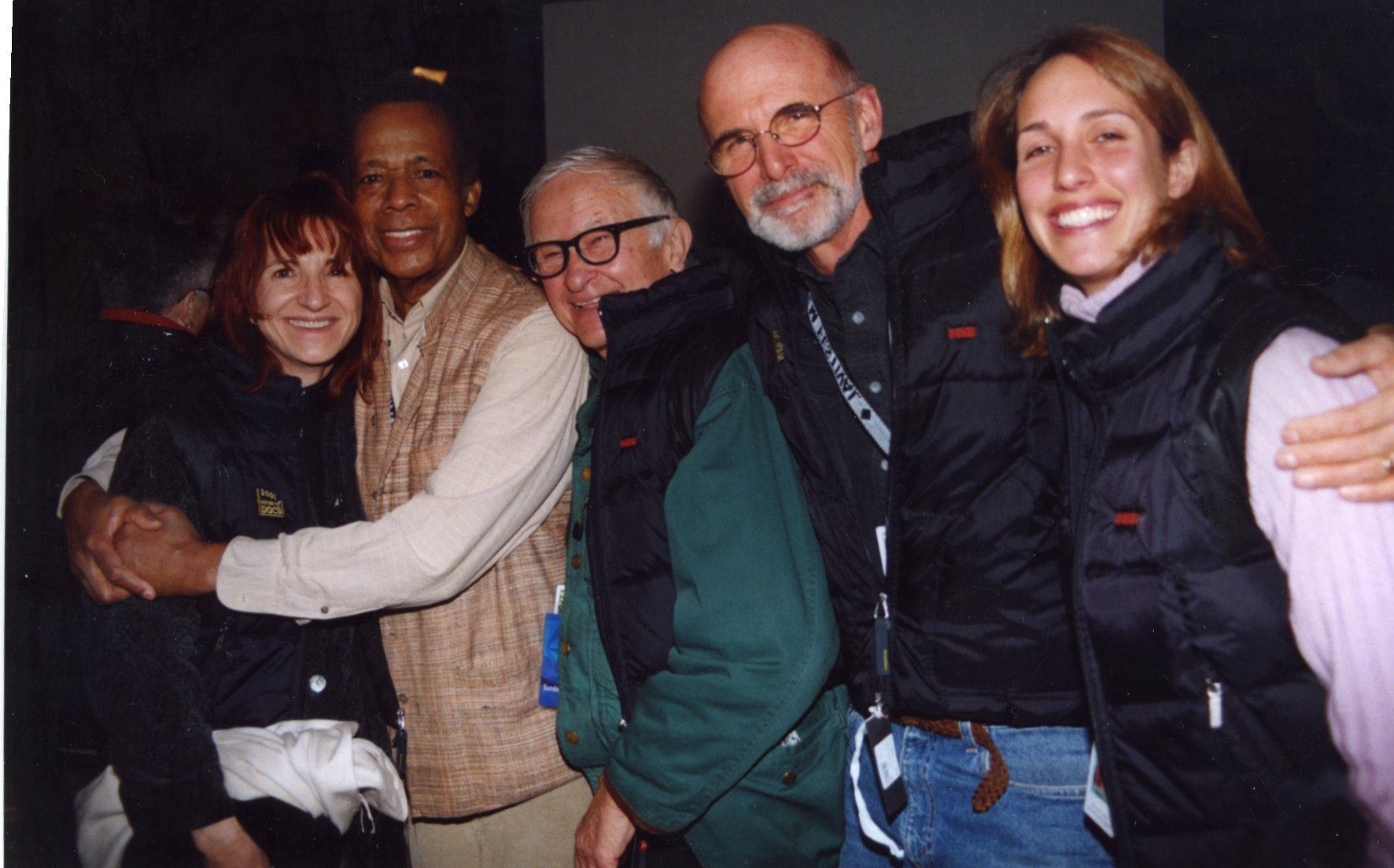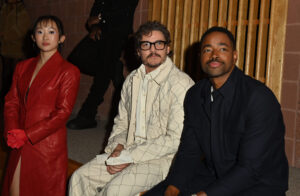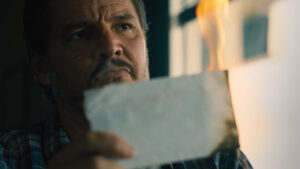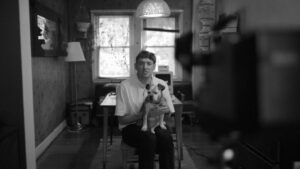Filmmakers William Greaves, Albert Maysles, and Jon Else share a moment with Sundance House of Doc organizers Nicole Guillemet and Meredith Lavitt. Photo by Jill Gibbons.
by Leigh Clouse
If you were looking to celebrate and discuss documentary films during the first few post-Y2K years at the Sundance Film Festival, there was no better place to be than the House of Docs. The House of Docs served as a community space to increase awareness of documentary film while also providing support to documentary filmmakers. Festival artists, documentary participants, industry leaders, and the public gathered together to network, meet with House of Docs resource advisors (many of them filmmakers themselves), members of the press, and international representatives.
House of Docs highlights included informal yet stimulating roundtable discussions on topics ranging from the creative process, ethics, and non-fiction trends to development, finance, distribution, and exhibition. Attendees listened in as directors Susan Froemke, William Greaves, Albert Maysles, and D.A. Pennebaker talked about the evolution of documentary filmmaking over the years. They also had the opportunity to hear director Merata Mita discuss the role of women filmmakers in elevating the first person documentary genre. You might’ve even found yourself sitting next to renowned film critic Roger Ebert, who attended the House of Docs in its second year!
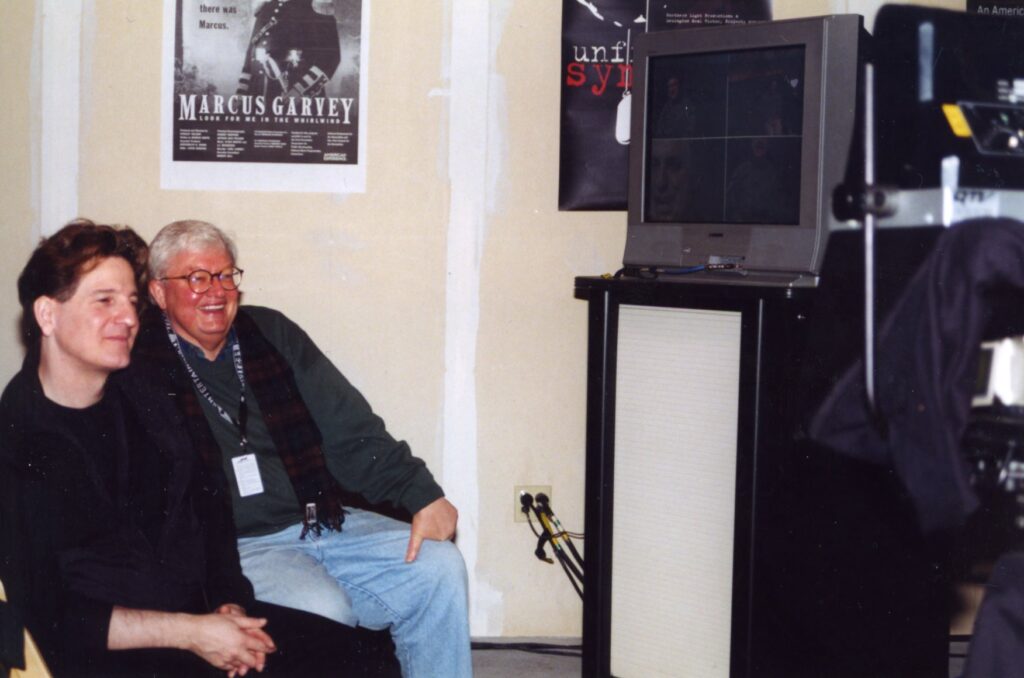
House of Docs proved to be so successful that Sundance decided to expand upon the community-building concept. The decision to include fiction filmmakers in the mix at Filmmaker Lodge in 2003, gave shape to the extensive dynamic programming that Festivalgoers have come to love, and can still experience today.
Stay informed about 2024 Festival programming by joining our email list for updates about screenings, panels, and more.
From press kits to posters, films to photos, and scripts to scores, the Sundance Institute Archives & Collection inspires and educates through preservation and access to seminal work of independent artists and the unique history of the organization. By sharing the history of independent storytelling, the Archives & Collection provides an opportunity for discovery and dialogue around creative work and its impact on contemporary culture. Learn more at sundance.org/archives

